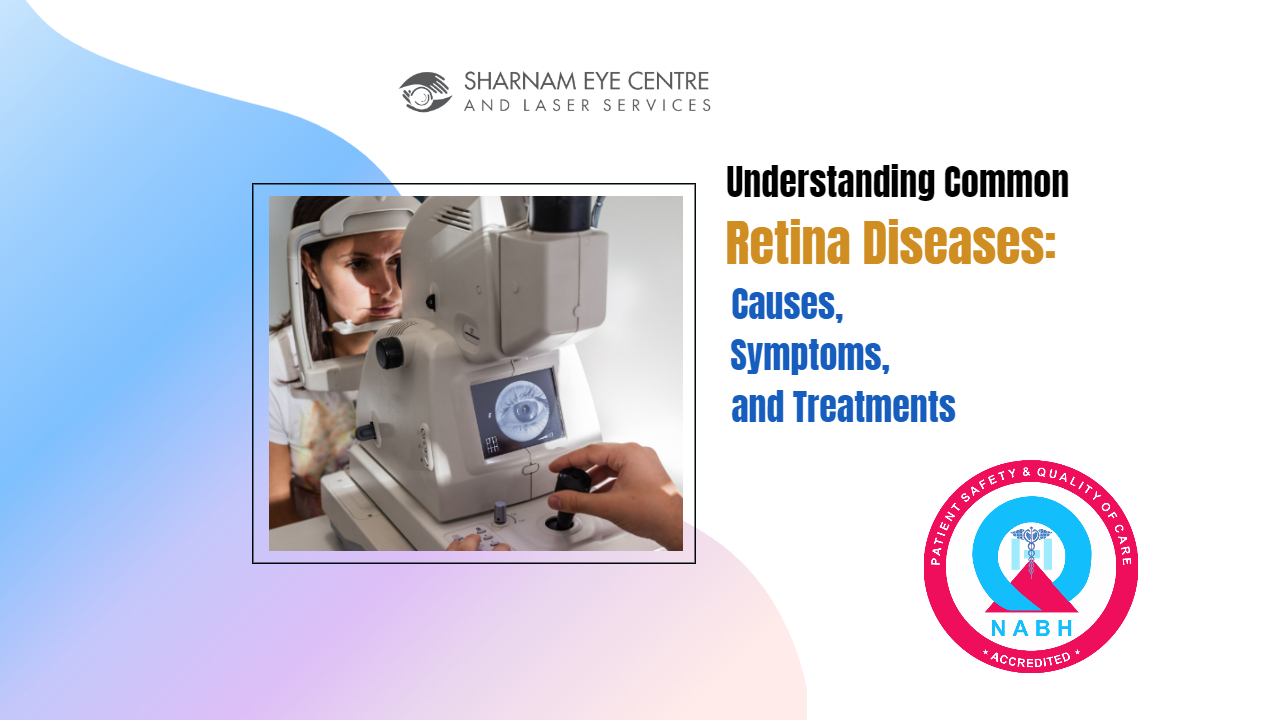Your vision is a precious gift, and the retina plays a crucial role in maintaining it. The retina is a thin layer of tissue at the back of your eye that captures light and sends visual signals to your brain. However, like any part of the body, the retina can be affected by various diseases. In this blog, we will explore some of the common retina diseases, their causes, symptoms, and available treatments.
1. Age-Related Macular Degeneration (AMD):
Causes: AMD is primarily linked to aging and genetic factors.
Symptoms: Blurred or distorted central vision, difficulty reading, and recognizing faces.
Treatments: Depending on the type of AMD, treatments can include medications, laser therapy, or injections.
2. Diabetic Retinopathy:
Causes: High blood sugar levels damage blood vessels in the retina.
Symptoms: Initially, there may be no symptoms, but as the disease progresses, you might experience vision changes.
Treatments: Managing diabetes is essential. Treatments may include laser therapy or injections.
3. Retinal Detachment:
Causes: This occurs when the retina pulls away from its normal position.
Symptoms: Sudden flashes of light, a curtain-like shadow over your vision, or a sudden increase in floaters.
Treatments: Surgery is typically required to reattach the retina.
4. Retinitis Pigmentosa:
Causes: It’s often a genetic disorder.
Symptoms: Night blindness, tunnel vision, and a gradual loss of peripheral vision.
Treatments: While there is no cure, low vision aids and genetic counseling may help manage the condition.
5. Macular Hole:
Causes: Usually occurs due to age or trauma.
Symptoms: Blurred or distorted central vision.
Treatments: Surgical intervention is often necessary to repair the hole.
6. Retinoblastoma:
Causes: A rare cancer that typically affects young children.
Symptoms: White pupil, misaligned eyes, and vision problems.
Treatments: Treatment options include chemotherapy, radiation therapy, or surgery.
Conclusion:
Your retina is a vital component of your vision, and understanding common retina diseases is essential for early detection and treatment. Regular eye exams are key to identifying any issues early on. If you experience any unusual vision changes or symptoms, don’t hesitate to reach out to a retina specialist like Dr. Puneet Gupta, who can provide expert guidance and care tailored to your needs. Remember, early diagnosis and prompt treatment can often make a significant difference in preserving your vision and quality of life.
Disclaimer: This content is for informational purposes only and should not replace professional medical advice, diagnosis, or treatment.



